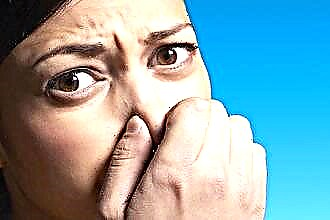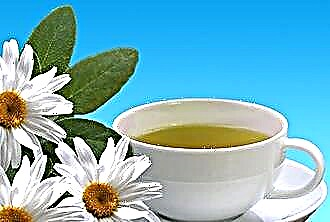Essential hypertension imposes certain prohibitions on a person's lifestyle. Many of them are about nutrition. It must be dietary. Sometimes it is recommended to completely eliminate certain foods from the diet and reduce the consumption of others. Drinks should also be approached with caution. Not everyone can drink high blood pressure, and if it is possible, then with restrictions. People who have constant problems with blood pressure often ask questions about such a drink as tea: can it be drunk with hypertension, which is healthier and in what quantities, does black tea increase or decrease blood pressure? And if everything is clear with coffee, doctors do not recommend drinking it for hypertensive patients, then with a drink made from tea leaves everything is somewhat more complicated.
 Tea is a drink made by steeping the leaves of a tea bush. The leaves are pre-harvested using a special technology. The drink has a long history. It is believed that his homeland is China.
Tea is a drink made by steeping the leaves of a tea bush. The leaves are pre-harvested using a special technology. The drink has a long history. It is believed that his homeland is China.
There are a lot of methods for collecting and preparing leaves for brewing. The division of this product into certain varieties and types depends on the specifics of the brewing technology.
The most common types of tea are:
- White;
- green;
- yellow;
- Red;
- black.
In addition, tea can be fermented and unfermented. White and green teas are classified as unfermented teas, while the rest differ in varying degrees of fermentation. Fully fermented tea is a black variety.
Fermentation is a special technology for processing tea leaves. The crumpled leaves secrete enzymes along with the juice, which are oxidized in the air and cause the fermentation process. Thus, the composition and properties of the plant change. Fermentation is done for the sake of enhancing the taste of tea, its strength and astringency. After oxidation, the tea leaves are heated at high temperatures and dried. Heating stops the fermentation process. The later this is done, the more fermentation the tea variety will have.
Fermentation makes a hot drink especially tasty, but some of the nutrients are destroyed. Therefore, the green appearance of the product is considered more useful.
The benefits of a leafy drink
Tea is undoubtedly healthy. This is evidenced by its composition. The drink is enriched with the following useful components:
- minerals;
- vitamins;
- antioxidants;
- proteins;
- amino acids;
- tannins;
- essential oils;
- pigments;
- alkaloids.
 Here are a few reasons why a tea drink is good:
Here are a few reasons why a tea drink is good:
- it strengthens the immune system;
- prevents the appearance of kidney stones;
- has a beneficial effect on the nervous system;
- eliminates headaches;
- strengthens the walls of blood vessels;
- improves blood flow in the heart muscle;
- improves cerebral circulation;
- clears the mind and cheers up;
- protects teeth from decay;
- strengthens bones;
- burns fat;
- increases the lifespan.
It is worth dwelling in more detail on the alkaloids contained in the product, since these substances are directly related to the state of blood pressure.
Alkaloids
Does tea increase blood pressure? Yes, to a small extent, thanks to the alkaloids.
The most important of these is caffeine. In the drink, its content reaches about 4%. Caffeine gives tea a bitter tart taste, it is thanks to it that tea is called a tonic drink. Caffeine stimulates the nervous system, tones up blood vessels, increases brain activity, and enhances physical endurance.
Black tea raises blood pressure because it contains caffeine. This substance is also an integral component of coffee. However, in tea, caffeine is different, it is in conjunction with other alkaloids (theophylline, theobromine). Therefore, it is called a little differently: caffeine tannate or theine. The tonic effect of the so-called "tea" caffeine is mild and moderate. Why? The special "softness" is provided precisely by the presence of theophylline and theobromine, which have an antispasmodic and vasodilating effect.
Caffeine itself has the property of simultaneously narrowing and dilating blood vessels. So, the vessels of the brain are narrowed, and the vessels of the muscle tissue expand. Therefore, its effect on the level of blood pressure is ambiguous.
Black tea raises or lowers blood pressure
The drink can both raise and lower blood pressure. The provided effect depends on various reasons:
- how strong the tea is brewed;
- what variety is used;
- the state of human health;
- the amount of drink you drink;
- time of day for tea drinking;
- the amount of time that has passed since the tea was drunk.
If the drink is weakly brewed, black tea will rather lower the pressure than vice versa. At the same time, the invigorating effect of the drink will not be so pronounced.
Green tea contains more caffeine, which means that it can increase blood pressure more significantly.
The product has the effect of initially increasing the pressure slightly and for a short time, and then reducing it and keeping it in that state. Therefore, in a hypertensive person, the pressure may immediately rise, but then fall, and in a hypotensive person, on the contrary.
If you do not get carried away with excessive consumption of tea, then there will be no significant change in the level of blood pressure. Quite often, a tea drink in moderation is able to normalize blood pressure.
 It is best to drink a hot drink in the morning and not on an empty stomach, then a slight rise in pressure will create an invigorating effect. Evening tea can lead to sleep problems.
It is best to drink a hot drink in the morning and not on an empty stomach, then a slight rise in pressure will create an invigorating effect. Evening tea can lead to sleep problems.
If a little time has passed after drinking a cup of tea, an increase in pressure may be noticeable. But after a while, it can also drop significantly.
Hypertension and black tea: to drink or not to drink
Black tea for hypertension is not a contraindication. But there are some recommendations for the "tea ceremony" in hypertensive patients. What is the reason for this?
The caffeine contained in tea can really raise blood pressure, excite the central nervous system, activate the activity of the brain, constricting the blood vessels in it, relieve fatigue, and increase the ability to concentrate. But fermented tea (which black tea is) has less caffeine. Theophylline and theobromine increase the strength and heart rate, but at the same time relax the tone of the vascular walls.
 In other words, alkaloids act in two ways: first they increase the pressure, then they lower it. At the same time, they contribute to a smooth transition from one state to another.
In other words, alkaloids act in two ways: first they increase the pressure, then they lower it. At the same time, they contribute to a smooth transition from one state to another.
A person may have their own reaction to black tea with hypertension. It can be unpredictable: for one, a regular hobby for tea will cause bouts of hypertension, while another will feel that blood pressure has decreased. If, after a black drink, the tonometer shows a change in indicators up to 20 units, then it is necessary to strictly observe the measure in the use of this drink.
Another important observation: if the invigorating effect is pronounced, there is increased nervous excitability, the subsequent inevitable decrease in pressure will be just as significant.
Recommendations for tea lovers with hypertension:
- You cannot drink it before bedtime, as black tea increases blood pressure in this case.
- You should not indulge yourself with such a drink on an empty stomach. This recommendation is especially important for those who need diuretics to be taken regularly in the morning.
- You don't need to drink more than three cups a day: this is excess caffeine and excess liquid. With severe hypertension, you can reduce the consumption of the drink to 1 cup.
- It is advisable to combine green tea and black tea for one day, drinking them alternately.
- Black tea is good for helping to normalize blood pressure in case of sudden changes in pressure (sudden upward or downward spikes).
- A black drink should not be drunk in large quantities for eye diseases, as it increases eye pressure.
- You can replace regular tea with a weak drink with milk, this will significantly reduce the amount of caffeine in it.
- The hotter the tea drink, the higher its tonic effect.
Black tea is a healthy and tasty drink. You should not deny yourself the pleasure of enjoying a cup of hot product if hypertension is diagnosed.
When you have to choose between coffee and tea, it is better to opt for the latter. The main thing is to observe the measure, then there will be no need to fear an increase in pressure. Hypertensive patients must definitely check their individual reaction to a black drink made from tea leaves, and then draw the appropriate conclusions.



